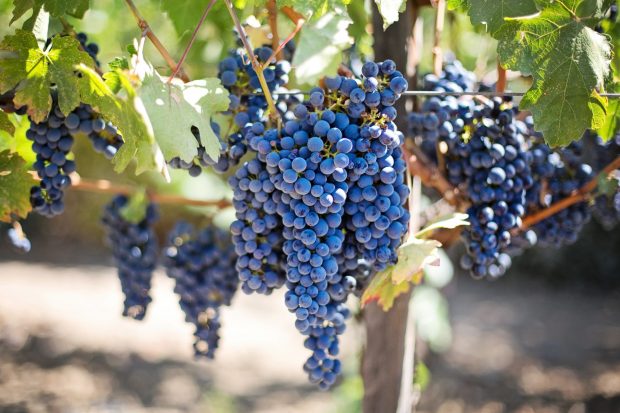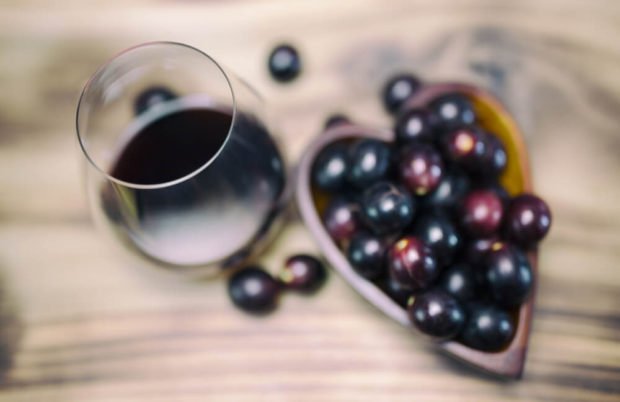An apple a day keeps the doctor away, but what about grapes? Red wine? Chocolate? All of these foods have one thing in common – they contain resveratrol. Since 2003 there has been great interest in the compound and how it may boost your longevity. But will it really?
What is Resveratrol?
Resveratrol is a polyphenol found in several plants. Its purpose is to protect these plants from pathogens, and this functionality may also translate to human beings.
The compound is packed with antioxidants, which may serve to promote longevity. However, it’s not only the antioxidant value that it has which may promote lifespan, but rather its ability to mimic caloric restriction.
How do you get it?
Resveratrol is found in foods such as peanuts, pistachios, red and white grapes, blueberries, cranberries, and even cocoa and dark chocolate. The plants from which these foods come make resveratrol to fight fungal infection, ultraviolet radiation, stress, and injury.
An army of researchers is scrambling to see if that protective power can be extended beyond plants.
An early resveratrol researcher was Dr. David Sinclair, now a professor of genetics at Harvard Medical School. He and his colleagues reported in 2003 that resveratrol could increase cell survival and slow aging in yeast (and later in mice) by activating a “longevity” gene known as SIRT1.
Resveratrol: Caloric-Restriction Can Boost Longevity
Harvard University published a study that found that resveratrol mimics the effects of caloric restriction in yeast cells, which boosted their life spans by as much as 70%.
Over the years, there have been other similar and more recent studies. Many concluded that resveratrol can mimic the effects of caloric restriction.
Protects cardiovascular health
A review published last year in the International Journal of Molecular Sciences examined the effects of resveratrol on cardiovascular health. According to the review, resveratrol was found to mitigate the risks of cardiovascular disease, particularly hypertension and high cholesterol.
Additionally, resveratrol was also found to delay the build-up of fats and cholesterol in the artery walls (atherosclerosis) and boost the circulatory system, both of which serve to keep your heart healthy.
Helps combat neurodegenerative diseases
Resveratrol contains both antioxidant and anti-inflammatory properties, and this can help protect the brain and combat neurodegenerative diseases.
The formation of β-amyloid plaques and α-synuclein have been associated with Alzheimer’s disease and Parkinson’s disease, respectively.
According to a rodent study published in The Journal of Nutritional Biochemistry, resveratrol was found to induce neuroprotective against cognitive loss.
The resveratrol fiasco
Since the start, research on resveratrol has not been without some controversy. This is not surprising given the money at stake, driven by interest from big drug and health companies. One such research paper published in PubMed by entitled Resveratrol Fiasco challenged the early findings and created debate in scientific circles.
Is resveratrol a longevity silver bullet?
Yet, despite this, the excitement of 2003 around the compound has not diminished. In fact, the resveratrol market is estimated to reach US $115.7 million by 2028.
The media has contributed to the hype. You’ll find countless articles suggesting drinking red wine or eating dark chocolate will provide the benefits of resveratrol and by association offering some longevity benefit too.
This is where it gets challenging. Mainly because in most of the studies conducted on resveratrol, the dose administered in experiments is always much higher than you’d normally consume in a daily diet.
Dr. Sinclair, who was named one of Time Magazine’s 100 Most Influential People back in 2014 for his anti-aging research, confirmed this. He said, “you would need to drink a hundred to a thousand glasses of red wine to equal the doses that improve health in mice,”
And of course this would be completely impractical. Alcohol is after all a neurotoxic substance, and one should always consume it in moderation, if at all.
Human studies
Most of the positive studies on resveratrol have come from cultures of cells or laboratory experiments with yeast, roundworms, fruit flies, the short-lived turquoise killifish, or mice.
The few human studies have looked at specific intermediate markers, such as levels of antioxidants, heart rate variability, blood flow to the brain, and amounts of cancer proteins.
 To date, there are no known studies published measuring long-term health or survival. But it’s early days, and this may change in time.
To date, there are no known studies published measuring long-term health or survival. But it’s early days, and this may change in time.
Will a resveratrol supplement boost longevity?
Clearly, though, consumers have bought into the hype of resveratrol. The sales of resveratrol supplements keep growing.
There is a lot of debate in this arena too. Any search on Google will confirm this. Can a supplement really benefit us? What are the downsides?
According to Harvard Health, “resveratrol acts on many different tissues in the body. It is chemically related to estrogen. In some situations, high doses of resveratrol boost the activity of estrogen. In others they block estrogen. That makes resveratrol supplements iffy for women with cancer of the breast, ovary, uterus, or other estrogen-sensitive tissue.”
It’s also not good for those trying to become pregnant, or those taking an oral contraceptive.
“Resveratrol makes platelets in the bloodstream less “sticky,” and so could increase the risk of bleeding in people who take warfarin (Coumadin), clopidogrel (Plavix), aspirin, ibuprofen, or other nonsteroidal anti-inflammatory drugs.”
To date, no one actually knows what is the safe, effective dose for humans. They also do not understand yet how long-term use will affect us.
The bottom line
Resveratrol is an exciting compound that holds great promise. However, eating certain food with the compound or drinking red wine will not guarantee enough to influence your longevity.
Some would argue, taking a resveratrol supplement today is like being part of an experiment—sort of like the tests on lab mice.
The difference is of course that mice have researchers assessing their response to resveratrol. We don’t. If you are planning to take a resveratrol supplement, then let your doctor know so you both can be alerted to any possible harms.
Want to know more?
While we can’t escape aging, we can ensure that we age healthily. Researchers are looking into compounds that can combat the degenerative aging process, such as fisetin.
References
Gal, R., Deres, L., Toth, K., Halmosi, R., & Habon, T. (2021). The Effect of Resveratrol on the Cardiovascular System from Molecular Mechanisms to Clinical Results. International journal of molecular sciences, 22(18), 10152. https://doi.org/10.3390/ijms221810152
Howitz, K. T., Bitterman, K. J., Cohen, H. Y., Lamming, D. W., Lavu, S., Wood, J. G., Zipkin, R. E., Chung, P., Kisielewski, A., Zhang, L. L., Scherer, B., & Sinclair, D. A. (2003). Small molecule activators of sirtuins extend Saccharomyces cerevisiae lifespan. Nature, 425(6954), 191–196. https://doi.org/10.1038/nature01960
Sarroca, S., Gatius, A., Rodríguez-Farré, E., Vilchez, D., Pallàs, M., Griñán-Ferré, C., Sanfeliu, C., & Corpas, R. (2021). Resveratrol confers neuroprotection against high-fat diet in a mouse model of Alzheimer’s disease via modulation of proteolytic mechanisms. The Journal of nutritional biochemistry, 89, 108569. https://doi.org/10.1016/j.jnutbio.2020.108569
Spadaro, O., Youm, Y., Shchukina, I., Ryu, S., Sidorov, S., Ravussin, A., Nguyen, K., Aladyeva, E., Predeus, A. N., Smith, S. R., Ravussin, E., Galban, C., Artyomov, M. N., & Dixit, V. D. (2022). Caloric restriction in humans reveals immunometabolic regulators of health span. Science (New York, N.Y.), 375(6581), 671–677. https://doi.org/10.1126/science.abg7292






![women [longevity live]](https://longevitylive.com/wp-content/uploads/2020/01/photo-of-women-walking-down-the-street-1116984-100x100.jpg)









